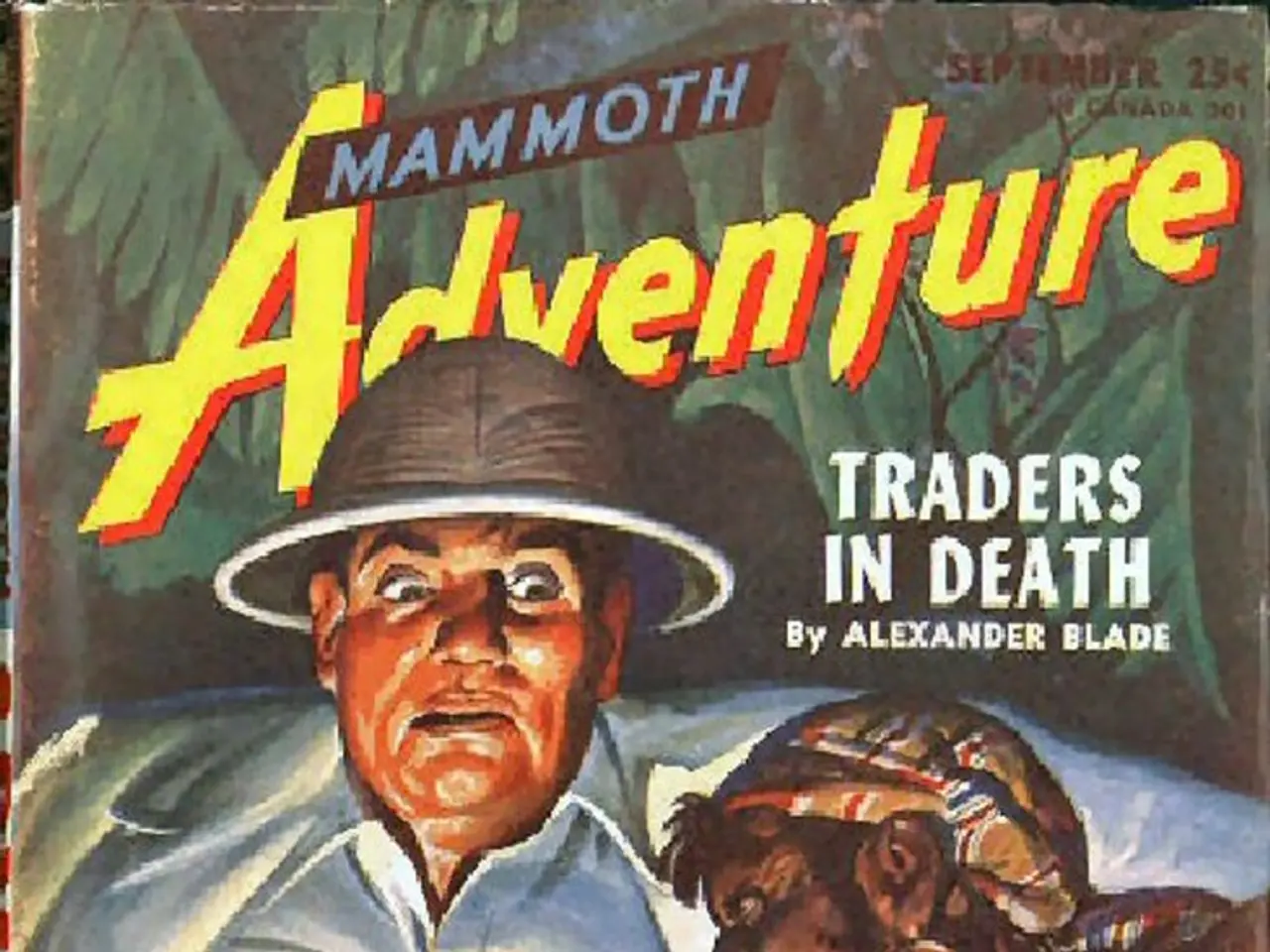Authoritarian literature suppressing the Edinburgh Book Festival
In the upcoming Edinburgh International Book Festival (EIBF), former Scottish first minister Nicola Sturgeon is one of the headliners, discussing her upcoming memoir, Frankly. However, the festival has been embroiled in a controversy surrounding its speaker selection process.
According to reports, the selection process for speakers at the EIBF appears to be influenced by considerations of the festival's approach to gender, class, and political issues. Some authors who focus on women's rights and gender debates have reported exclusion from the 2025 festival program, with concerns that discussions around these topics feel "extremely divisive" and may not align with the festival's criteria of maintaining "rigorous, informed and fair" conversations.
This suggests that EIBF exercises editorial discretion that can limit the participation of authors whose views on gender and political issues might be regarded as controversial or polarizing within the festival's framework. The refusal to invite co-editors of The Women Who Wouldn’t Wheesht and others for focusing on women's rights highlights the impact of gender and political sensitivities in speaker selection.
The direct impact of authors' views on class is not detailed in the available sources, but the political dimension, particularly relating to gender debates, is clearly influential.
The atmosphere at the festival has been described as sterile and more like a PR opportunity for the media and political establishment. The festival has become a celebration of regime literature, overseen by suitably vetted party members.
Despite the controversy, the EIBF's 2025 program includes authors with diverse perspectives. However, attendees might be disappointed to discover that the establishment is well represented.
The festival has cut ties with its sponsor, Baillie Gifford, due to its investments in fossil fuels. Meanwhile, Darren McGarvey and Susan Dalgety, two authors who were excluded from the festival, have been making waves with their latest books. McGarvey's Trauma Industrial Complex questions the rise of therapeutic culture and emotional 'oversharing', while Dalgety's The Women Who Wouldn't Wheesht celebrates Scottish women who defied abuse and accusations of 'transphobia' to defeat gender self-identification laws.
The spokeswoman for the book festival denies that McGarvey and Dalgety have been 'cancelled'. Meanwhile, the festival's articles cover a wide range of topics, including World, Politics, Podcasts, and Long-reads, with articles such as "In defence of whataboutery", "The shock, awe and terror of Hiroshima", "Rushanara Ali is everything wrong with Starmer's Labour", and "'Mind the Grab' is victim-blaming at its worst".
The Brendan O'Neill Show, a podcast discussed in the publication, also has an episode titled "What I saw in Gaza". The EIBF, scheduled for later this week, has been beset by declining audiences for several years.
These dynamics reflect broader tensions in cultural events balancing inclusivity with debate management. As the festival continues, these issues are likely to remain a topic of discussion.
- The controversy surrounding the Edinburgh International Book Festival (EIBF) speaker selection process indicates that cancel culture might have an influence, with authors focusing on gender debates and women's rights being reportedly excluded and labeled as divisive, while the festival maintains a focus on maintaining 'rigorous, informed, and fair' conversations.
- Stepping into the realm of entertainment and general news, the festival has become a platform where political sensitivities play a significant role, as evidenced by the refusal to invite co-editors of The Women Who Wouldn’t Wheesht and others, despite their focus on women's rights and gender debates.
- The festival's articles encompass a broad spectrum, from World and Politics to Long-reads, yet conversations around gender and political debates continue to spark controversy, as shown by the ongoing discussions about the exclusion of authors like Darren McGarvey and Susan Dalgety whose works challenge political and cultural norms, such as McGarvey's critique of Therapeutic culture in Trauma Industrial Complex and Dalgety's celebration of Scottish women who defied abuse and accusations of transphobia in The Women Who Wouldn't Wheesht.






